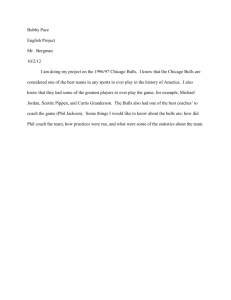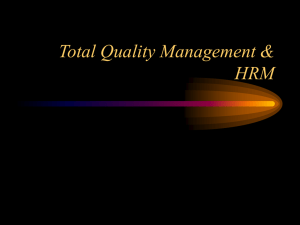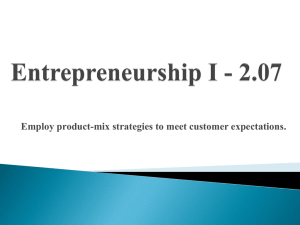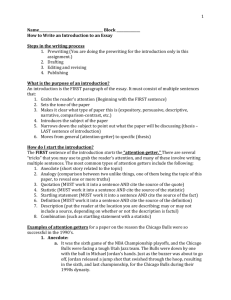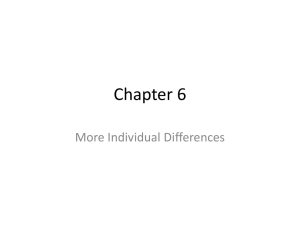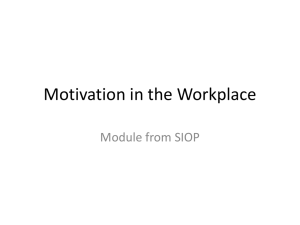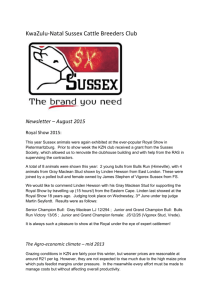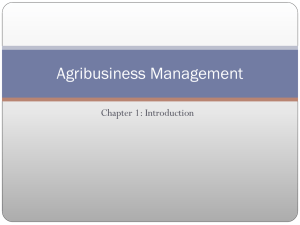Chicago Bulls Organizational Culture Analysis
advertisement
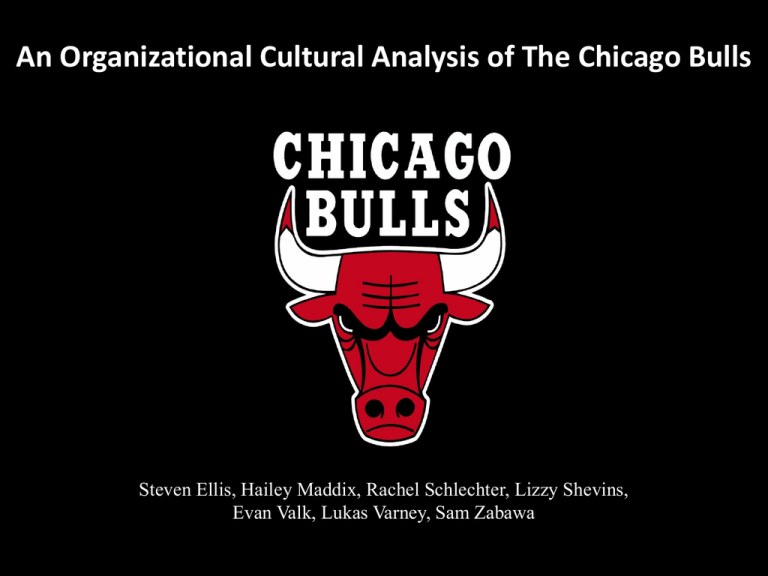
An Organizational Cultural Analysis of The Chicago Bulls Steven Ellis, Hailey Maddix, Rachel Schlechter, Lizzy Shevins, Evan Valk, Lukas Varney, Sam Zabawa Background Structure • Central Division in the Eastern Conference • Executive staff: Jerry Reinsdorf • Basketball operations: Gar Forman History • Joined NBA in 1966 • Early struggles • Michael Jordan era – Six championships – Six Finals MVP awards • Derrick Rose era Mission Statement “The Chicago Bulls organization is a sports entertainment company dedicated to winning NBA Championships, growing new basketball fans, and providing superior entertainment, value and service.” Many people. One attitude. To dazzle our fans and sponsors. Chicago Bulls mission statement. (2012). The Official Site of the Chicago Bulls. Retrieved October 15, 2012, from http://www.nba.com/bulls/news/mission_statement.html Data Collection Website analysis Observation Interviews Task Performance and Job Satisfaction: Value-Percept Theory • Jobs within organization supply what they value – Coworker satisfaction – Supervisor satisfaction – Pay satisfaction – Promotion satisfaction Michael Reinsdorf (president) Task Performance and Job Satisfaction: Stress • Time pressure is a major challenge stressor • Utilize coping mechanisms – Behavioral coping – Training interventions Task Performance and Job Satisfaction: Motivation • Major Features of motivation: – Full time employees: Pension benefits, full health care – All employees: free lunch, networking opportunities, prized bonuses, and a chance to work with the players • Always a chance to earn lump-sum bonuses Task Performance and Job Satisfaction: Trust, Justice, and Ethics • Ethics and justice play a crucial role in the Bulls Organization • Unethical to sell tickets to brokers outside of Chicago • Trust creates increased task performance and stronger commitment to the organization • • Conflicts are kept within the department and resolved by the respective supervisor The Chicago Bulls encourage employees to pursue best opportunities for their career Organizational Commitment • Definition: An employee’s desire to remain a part of the organization. • Three types of commitment – Affective – Continuance – Normative Organizational Commitment: Affective Commitment • Associated with feelings of loyalty and increased interpersonal and citizenship behaviors • Strong levels of affective commitment – Community events are organized for employees to promote goodwill and an atmosphere of commitment – Demonstrated by employee longevity as many employees have worked for 25-30 years Organizational Commitment: Continuance Commitment • Many Chicago Bulls employees, especially in ticket sales, are recent college graduates or interns – The need for job experience is a reason to stay committed because jobs are hard to come by in the sport industry – To succeed, employees need the opportunity to learn and network with industry professionals • Company benefits also contribute – Employees need health and insurance benefits to ensure a high quality of life Organizational Commitment: Normative Commitment • Internship Mentor Program – Provide knowledge and insight to sport industry – Provides opportunity in sports • Charitable efforts – EnergizaBulls Fitness Program – United Center Joint Venture Scholarships – James Jordan Boys & Girls Club and Chicago Bulls Family Center – Ray and Joan Croc Corps Community Center Leadership • Meeting with employees as often as possible – Building relationships • Since 2010- no rush to change culture – Fair and equal treatment of employees • Decision-making – Resistance to new leader since 2010 Teamwork • Michael Reinsdorf • Certain departments working collaboratively • Must have high awareness of one another • Reinforcement of each other • Carla DeLio • Pregame meetings: individual tasks and responsibilities • Action team • Coming together on game day • Goal interdependence: overlapping vision of goals • Kristina Kozica •Team atmosphere promoted throughout department Contests Action team processes • Continuing education program Overall Description of Culture • High satisfaction and commitment – Long tenure – Low turnover rate • “Many people. One attitude.” – Work towards a common goal – Manifested on game days Concluding Thoughts Welcoming environment and effective leadership Higher job satisfaction and task performance “Many people. One attitude. To dazzle our fans and sponsors” THANK YOU
